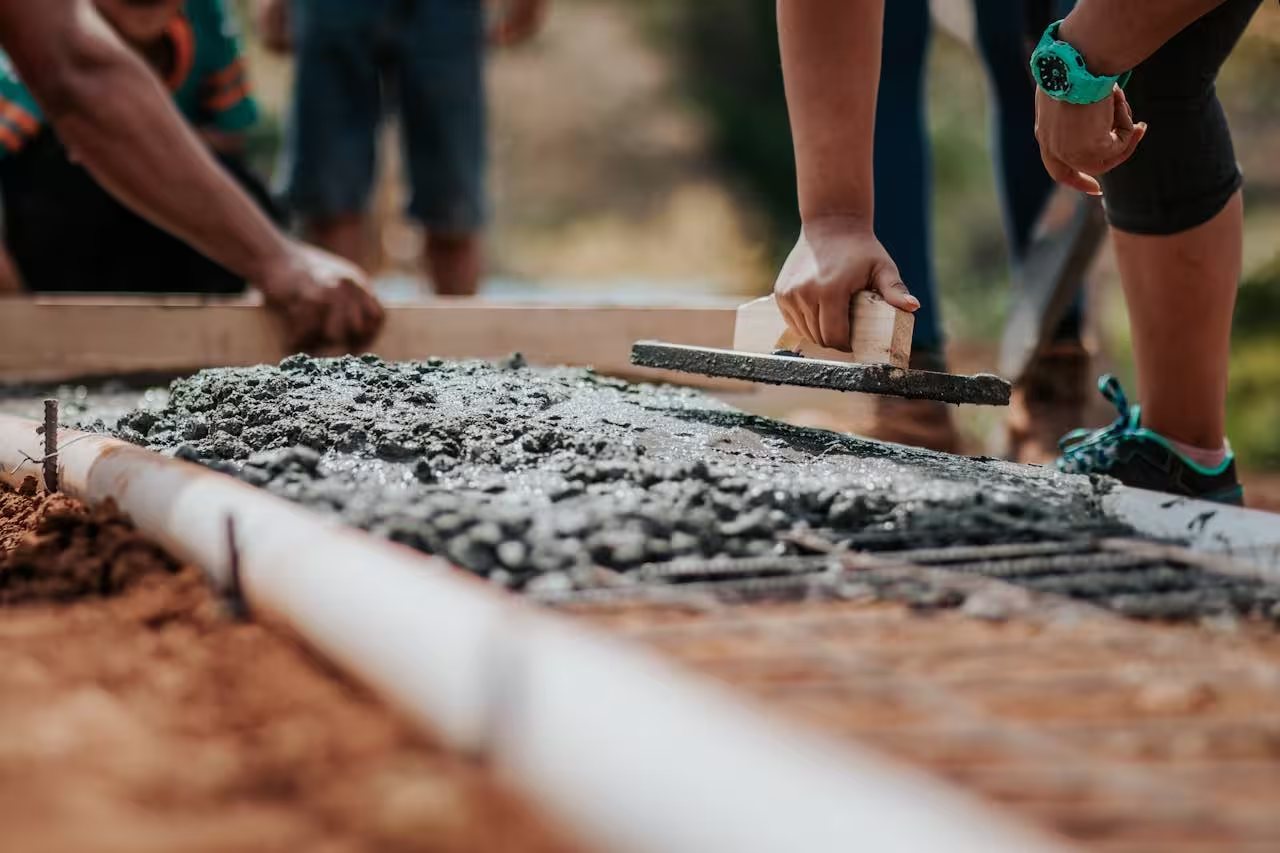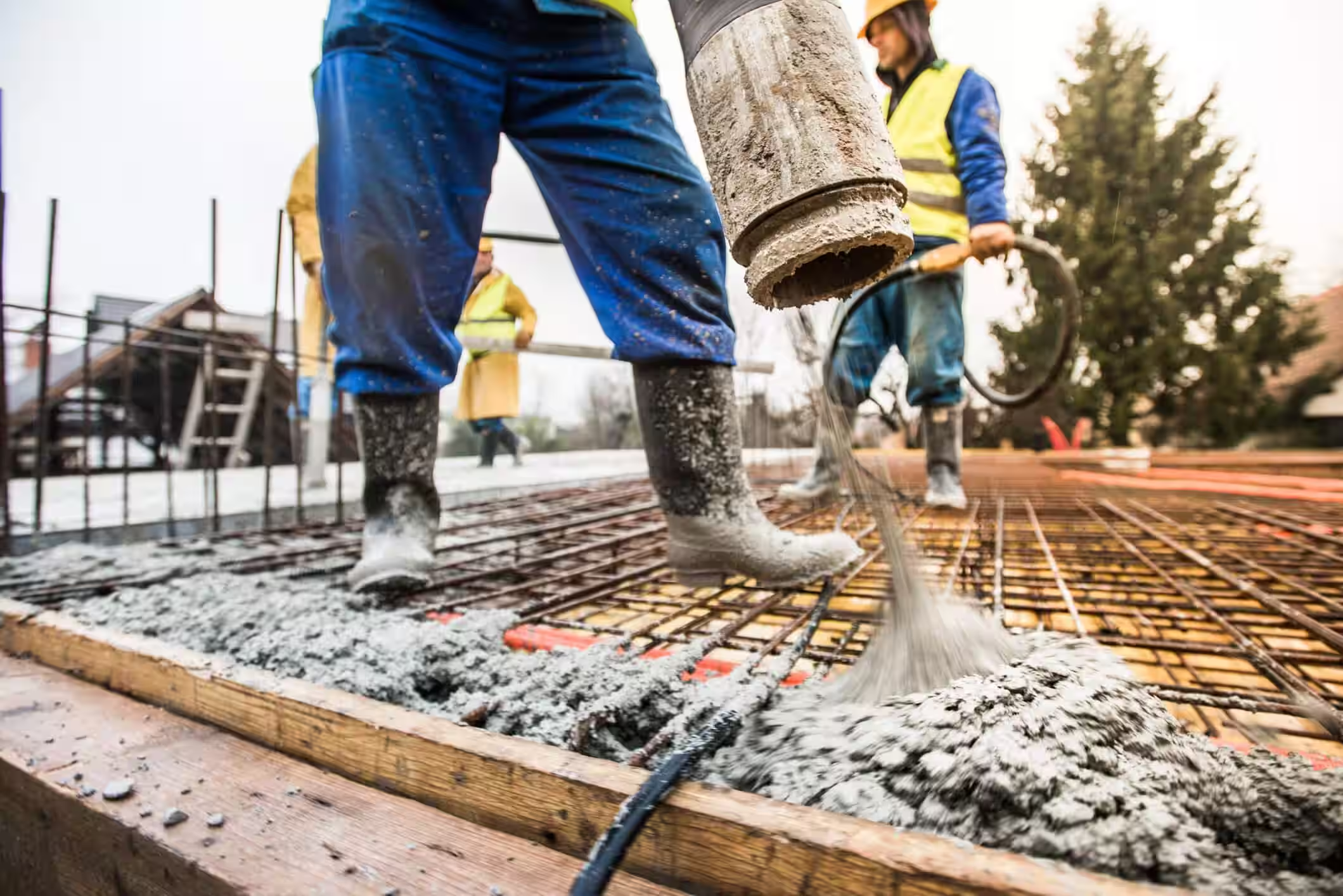Specialty Concrete Services in Denton, TX
Understanding Specialty Concrete Services: Beyond Standard Applications
The Science and Art of Specialty Concrete Applications
When considering concrete, you might envision basic slabs and foundations. However, specialty concrete reveals possibilities that revolutionize how we construct, design, and preserve our environments. Standard concrete resembles fundamental cooking ingredients – flour, water, and eggs. Specialty concrete compares to gourmet cuisine where each element fulfills a specific purpose to create something remarkable.
Let’s discover this intriguing realm where science intersects creativity, and understand how various specialty applications address unique challenges in our constructed environment.
What Makes a Specialty Concrete Contractor Different?
Unlike standard concrete professionals, specialty concrete experts work with advanced understanding of material science, sophisticated techniques, and innovative methodologies. They function like surgeons compared to general physicians – both practice medicine, but specialists tackle particular challenges requiring focused knowledge.

The Foundation of Decorative Concrete
Decorative concrete embodies artistic expression within the concrete industry. When engaging decorative concrete specialists, you’re working with professionals who understand manipulating this adaptable material to achieve aesthetic goals while maintaining structural performance. This parallels how sculptors recognize potential in marble blocks – raw material provides merely the foundation.
Consider how decorative concrete patio professionals transform ordinary outdoor surfaces into entertainment spaces resembling natural materials. Through methods like stamping, staining, and texturing, concrete becomes versatile material imitating flagstone, brick, or even wood grain patterns.
Understanding Polished Concrete Technology
Polished concrete appears straightforward but involves sophisticated chemistry. When concrete polishing experts grind and polish surfaces, they’re altering concrete’s microscopic structure. Imagine converting rough sandpaper into mirrors – through progressively finer abrasives, surfaces transform from porous to reflective.
The procedure involves multiple diamond polishing stages, each utilizing specific grit sizes and methods. Polished concrete flooring specialists must comprehend how concrete density, age, and composition influence polishing processes. This expertise prevents common issues like uneven luster or premature deterioration.
Stamped Concrete Contractor Expertise: Creating Reality from Illusion
Stamped concrete represents one popular specialty application, yet many misunderstand its complexity. Stamped concrete professionals don’t merely press patterns into wet concrete. They coordinate timing, material chemistry, and design vision to produce convincing replications of natural materials.
The process begins with understanding concrete curing dynamics. Too early, stamps won’t create clear impressions. Too late, concrete becomes excessively firm for stamping. Similar to preparing soufflés – timing proves crucial. Concrete pattern specialists must also manage color integration, release agents, and sealing processes to achieve authentic-appearing results.
Stained Concrete Contractor Chemistry: Transforming Gray to Gold
Stained concrete involves more than applying color to surfaces. When working with stained concrete specialists, you’re engaging professionals who understand chemical reactions at molecular levels. Acid stains react with concrete minerals to create permanent color transformations, similar to iron oxidizing when exposed to air and moisture.
This process differs fundamentally from paint or dyes. Concrete staining professionals must consider:
- Concrete composition and age
- Surface preparation requirements
- Chemical reaction timing
- Neutralization processes
- Sealing compatibility
The result produces color penetrating surfaces rather than remaining superficial, creating depth and translucency unachievable through traditional painting methods.
Concrete Resurfacing Contractor Magic: Renewal Without Replacement
Concrete resurfacing represents renovation artistry without demolition. When concrete resurfacing specialists approach projects, they assess existing concrete like physicians diagnosing patients. The process involves understanding:
- Structural stability of the existing slab
- Adhesion requirements
- Thickness limitations
- Material compatibility
- Cure time management
Consider resurfacing similar to applying new skin layers on aging surfaces. Concrete restoration professionals must ensure these new layers bond completely with original surfaces, creating unified structures functioning as single units. This requires understanding polymer chemistry, bonding agents, and application techniques differing from standard concrete placement.
Concrete Overlay Contractor Innovation: Adding Function and Beauty
Concrete overlays expand concrete’s potential applications. Concrete coating professionals working with overlays must understand material interactions. Overlays include:
- Self-leveling for smooth surfaces
- Stampable for textured patterns
- Microtoppings for thin applications
- Spray-applied for unique textures
Each type demands specific knowledge regarding substrate preparation, thickness control, and curing conditions. This compares to painting on various surfaces – watercolor paper requires different approaches than canvas or metal.
Specialized Concrete Repair Contractor Techniques
Concrete repair extends beyond simple patching. Specialized concrete repair professionals understand structural engineering principles and material compatibility. They diagnose issues like:
- Concrete crack repair contractor techniques that address the root cause
- Concrete leveling contractor methods using polyurethane injection
- Concrete grinding contractor approaches for surface correction
- Foundation concrete stabilization techniques
Each repair method requires understanding underlying problem sources. Similar to detective work – treating symptoms without addressing causes creates recurring problems.
Specialized Concrete Repair Contractor Techniques
Concrete repair extends beyond simple patching. Specialized concrete repair professionals understand structural engineering principles and material compatibility. They diagnose issues like:
- Concrete crack repair techniques addressing root causes
- Concrete leveling contractor methods using polyurethane injection
- Concrete grinding approaches for surface correction
- Foundation concrete stabilization techniques
Each repair method requires understanding underlying problem sources. Similar to detective work – treating symptoms without addressing causes creates recurring problems.
Concrete Sealing Contractor Science: Protection at the Molecular Level
Concrete sealing professionals operate where chemistry meets physics. Understanding concrete moisture absorption, stain resistance, and damage prevention requires knowledge of penetrating versus topical sealers:
- Penetrating sealers react with concrete to create chemical barriers
- Topical sealers form physical barriers on the surface
- Both require proper surface preparation and application timing
Sealer selection impacts maintenance requirements, appearance, and performance. This resembles choosing between moisturizer and sunscreen – both protect skin through different mechanisms.


The Value Proposition of Specialty Concrete
Investing in specialty concrete services delivers:
- Enhanced durability through advanced techniques
- Improved aesthetics that add property value
- Reduced maintenance through better materials
- Energy efficiency through innovative applications
- Customization that meets specific functional needs
Consider specialty concrete similar to custom tailoring versus ready-made clothing – both fulfill basic purposes, but one provides perfect fit and superior performance.
Integration with Other Construction Trades
Specialty concrete professionals must coordinate with various trades:
- Plumbers for embedded lines and drains
- Electricians for conduit placement
- Architects for design integration
- Structural engineers for load considerations
- General contractors for project scheduling
This coordination demands communication skills beyond technical expertise.
